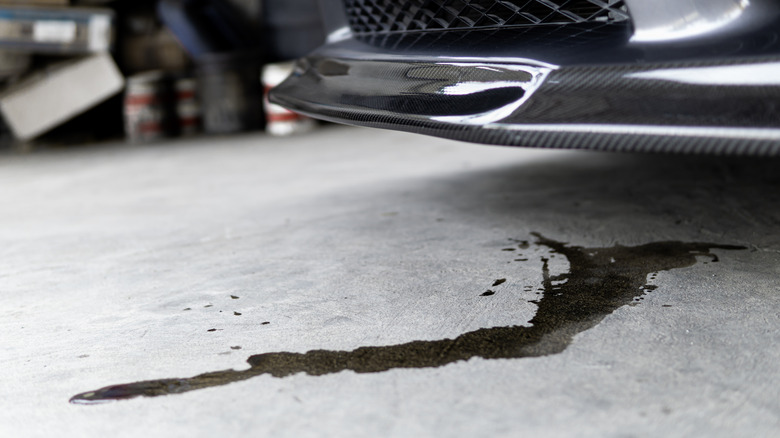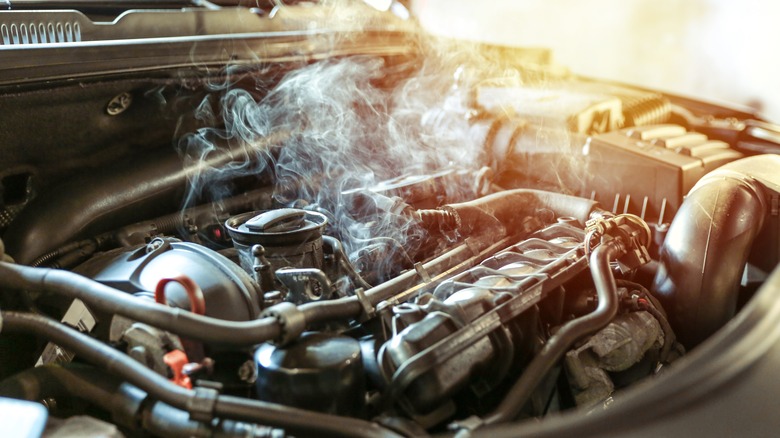What Happens If You Run An Engine Without Oil?
If you drive regularly, chances are you know that it's important to check your engine's oil and have it changed out regularly. It's just as true for small cars as it is for heavy-duty trucks or high-powered racers.
But why, though? Why is oil so important that we have to constantly keep tabs on it and spend an afternoon killing time in a garage waiting room every 3,000 to 10,000 miles (or when the dashboard indicator comes on)? Is it really that big a deal to stay on top of keeping your oil levels, well, level and making sure your engine hasn't gotten too old or dirty?
As explained by the MAT Foundry Group, oil is vital for greasing up a lot of intricate parts and keeps an engine moving smoothly. Said parts are going to move when the engine is on, regardless of whether or not they're coated in oil. But you really don't want to let that happen.
Just because you can doesn't mean you should
So on a very technical level — like, an extreme technicality — an engine will indeed run without oil in it. That said, never actually do such a thing, even as a test or a "joke."
Without oil, those intricate (and metal) parts will rub and scrape against each other. Often at 50 revolutions per second or more. The amount of friction this can create will start to wear out these moving parts very quickly. Think of it as fast-tracking decades of engine wear and tear, with no maintenance, in the span of a few minutes.
The immense amount of strain will also inevitably cause chips and other bits of metal to flake off, which will start to damage the engine even further as they scrape and grind through the machinery. A video from Engineering Explained that runs the same engine with oil and then without shows that, at best, even if nothing extreme happens, you're going to end up with damaged parts and metal flakes floating around. At second best, the whole thing will seize up and fail. At worst, and as demonstrated by the HOT ROD Network on YouTube, it can lead to smoke, fire, both, or even an internal explosion.

